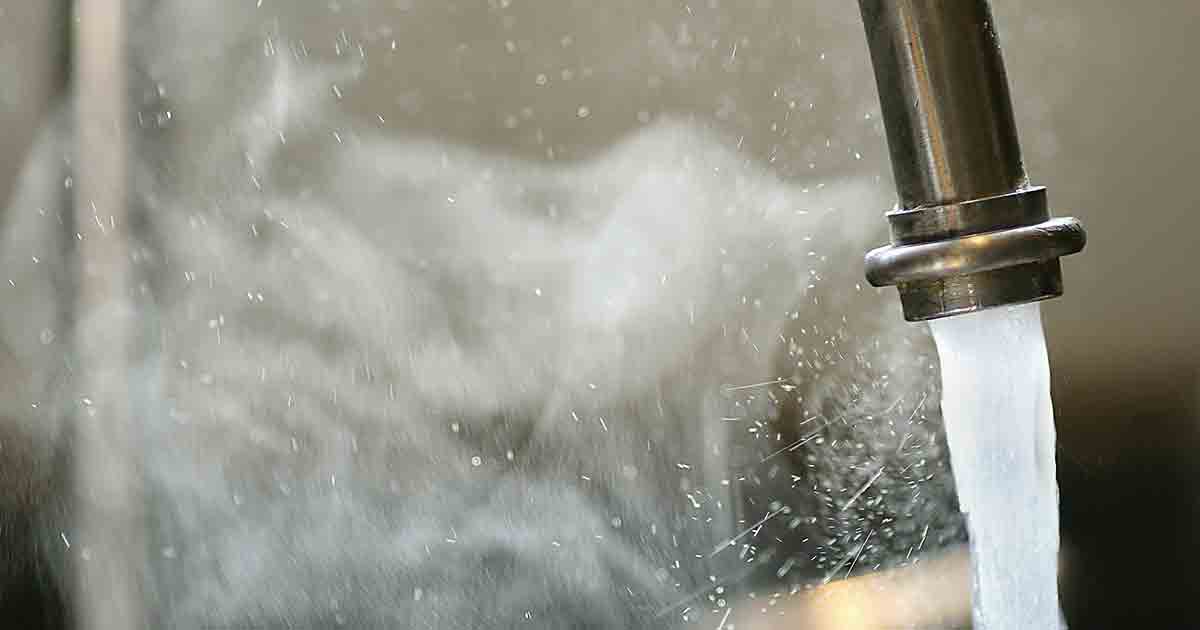Whether you plan to build or buy a home, remodel a room or seek ideas to expand your “green” footprint, we are all in the beginning stages of constructing our dreams. Each month, this column will invite you to look beyond the usual ideas and consider alternative, cost-effective and eco-friendly options. With so many topics to explore from top to bottom, room to room, inside and out, the goal of a vision is to take a firm step forward and begin living the dream.
Frustration and disappointment may be the precise emotion when the shower’s water temperature changes from soothing and warm to cold. As a busy family, it is challenging to estimate how long a hot water tank can supply the necessary water needed on a daily basis. Despite the common problems associated with the type of water heater many families still own, one growing trend is to transition to an Energy Star tankless water heater.
What is a Tankless Water Heater?
As a smaller, compact system, relatively the same size as a medicine cabinet, this appliance only uses energy “on demand.” Through an activated, high powered heat exchanger, the water circulates from one source to another, by either electric coils or a gas-fired burner. Prior to reaching the faucet, the incoming water is heated to the precise preset temperature. As an on-demand system, homeowners can choose from electric, propane, or natural gas models. The tankless water heater is both modern and more efficient, requiring little maintenance, and can resolve the issue of running out of hot water.
Cleaner Water
In a traditional tank, the heated water is contained and influenced by mineral scale deposits and rust. Based on the construction of the tank, it is a challenging prospect to consider accessing the interior and cleaning. The tankless water heater is not prone to rust and does not function by storing water. It offers water that is both fresh and clean.
A Green Appliance
“Energy Efficiency” are aspiring buzz words in saving money and in seeking a low-maintenance appliance. The same quality exists with a tankless water heater. By no longer worrying about a leaking unit, the tankless system will come with a minimum 10-year guarantee at purchase. For homeowners who use 40 gallons daily, monthly energy bills can be reduced by 30 percent.
Tip: Incentives are available for the tankless water heater in the form of tax credits. Additionally, contact your local energy company to learn if they offer homeowners a financial savings for owning a unit. Homeowners may be pleasantly surprised by the rewards!
The Right Unit
With the guidance from a knowledgeable representative of tankless water heaters, the right unit will be recommended based on the size of the household, the fuel type, climate, and soil conditions. Please be aware, similar to a household requiring two HVAC units, a large family may also require two tankless water heaters. Most electric appliances provide hot water at a rate of up to five gallons a minute. Even though gas-fired units supply a greater flow rate, they may not be able to sustain the needs of all sizes of households.
Cost
The initial cost of a tankless water heater is greater than that of a conventional storage water heater, but Energy Star tankless water heaters will typically last longer and have lower operating and energy costs. Additionally, with few parts to replace, the life expectancy is a minimum of 20 years.
Homeowners will quickly discover warm and hot water takes less time to arrive to the faucet or shower, eliminating the need to waste water before use. Families can maintain the same weekly schedule and perform all household cleaning tasks without increasing the usage. This appliance defines energy efficiency and eliminating stress!
Next Month: The Myth and Fact of Solar Panels



















